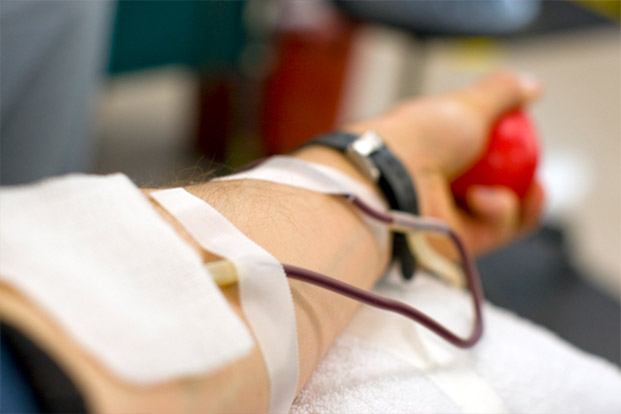How to prepare yourself for Blood Donation
Apr 19, 2022
Blood donation is a voluntary procedure. No one can be forced to donate blood. Each donor has to be ready on their own to do the noble deed. In fact there is a legal document that states that the donor is not coerced into donating and is doing the same out of his own free will.
Types of blood donation:
Blood is a precious resource and with the help of technology man has been able to use this resource in the bes possible way. Through machines and the latest technology the blood can be separated into components and can be used for several different uses –
- Whole Blood : The most common donation. Blood is then separated in its components-red cells,plasma,platelets.

Am I at any Risk while donating blood?
Blood donation is a safe procedure. New sterile equipment is used for donation, so there is no risk of infection.You can usually donate a pint of blood easily. Within 24 hrs of donation, the body replaces the lost fluids. After several weeks, the body replaces the lost red cells.
What is the eligibility for blood, plasma or platelet donation?
Following are the criteria for eligibility for blood donation:
- The donor has to be in good health
- The do not should be at least 18 yrs old
- The weight of the donor should be atleast 50 kg.
- The Hb should be more than 12.5.
- A donor can donate after 3 months of last donation.
- For a donor the BP systolic should be 100 to 180,and diastolic should be 50 to 100.
- The pulse of the donor should be between 50 to 100 without irregularity.
How is the patient prepared for donation and what are the requisites?
The donor opting for blood donation has to go through the following points:
- The donor is required to pass a physical health and history assessment
- Each donor should have a good sleep at night before donation.
- The donor should have a healthy meal before donation and avoid fatty food.
- The donor should drink plenty of water and other fluids before donation.
- For donor donating platelets, they should not take asprin 2days before donation
- Donors should not consume alcohol or caffeine before donation.
- Donors shouls avoid donation for 6 months if they have had a major surgery.
- Before you donate blood, you are required to fill confidential medical history. It is best that the donor is truthful.
What makes a donor non eligible for donation?
Because of risk of blood born infection, everybody cannot donate blood. Following high risk groups are not eligible to donate blood.
- IV drug abuser
- Homosexual men
- Donors who have suffered cardiac arrests and are are suffering from hypertension(diastolic>100,systolic>180),kidney disease, diabetes, epilepsy.
- Women who have had a miscarriage should avoid donation for 6months.
- Donor who have already donated blood or have been treated for malaria in last 3 months.
- Donors who have been immunized in the last one month.
- Donors who have consumed alcohol within 24 hrs.
- Donors who are HIV+ve ,HBSAg and HCV +ve.
- Donors who have had a dental procedure.
- Donors who have had a dental procedure.
What is the Post donation care provided to the donors?
Post donation the donors are recommended to :
- Rest for 5-20 mts
- It is recommended that they don’t drive after donation
- The donors are also provided snacks and juices
- The donors are also provided snacks and juices
- Not consume alcohol for 8 hrs after donation
- Avoid heavy work for 24 hrs post donation









